Middle East
What is happening with talks between Israel, the US and Hamas? | Israel-Palestine conflict News
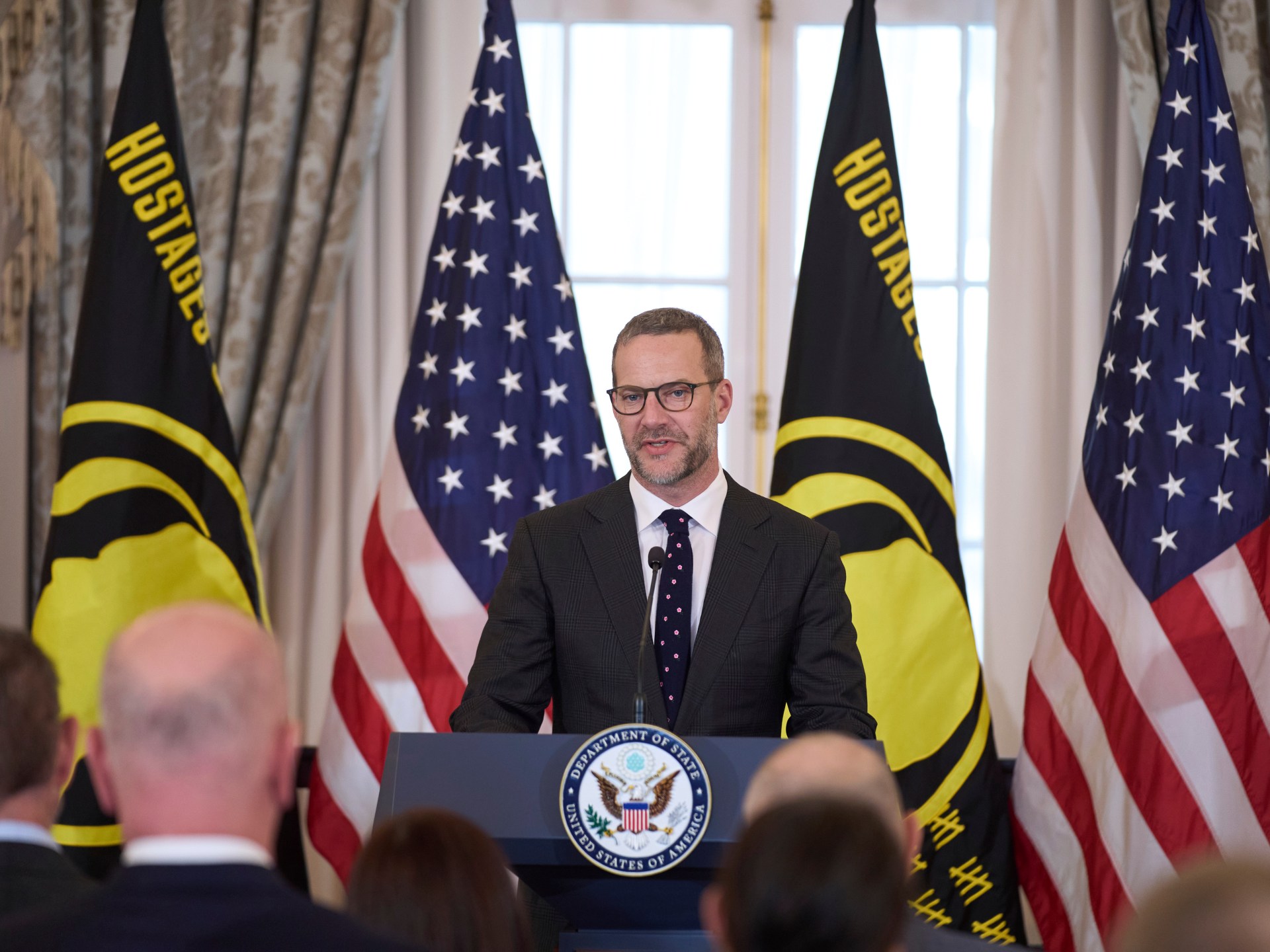
An Israeli negotiating team has reportedly extended its stay in the Qatari capital Doha, a day after the US envoy to the Middle East Steve Witkoff was in town to try and find a path forward between Israel and Hamas.
The deal reportedly on the cards is an extension of the ceasefire for up to 60 days in exchange for between five and 10 living Israeli captives held in Gaza.
While Hamas has previously rejected a similar deal, they may be more amenable after direct meetings between US hostage envoy Adam Boehler and top Hamas officials in recent weeks. Boehler had said that the meetings went well and suggested a deal was on the cards for a potential long-term ceasefire, prompting a backlash from Israel and pro-Israeli US politicians.
There are even reports that Boehler has been taken off the Israel-Gaza file, but those reports may be premature.
Let’s take a closer look.
What is the deal currently being negotiated?
A deal between Israel and Hamas had already been reached, which included three phases and was eventually to lead to a permanent ceasefire. The first phase involved a limited swap of Israeli captives and Palestinian prisoners, as well as a temporary ceasefire and Israel allowing an increased amount of humanitarian aid into Gaza. The details of the second phase were still to be negotiated, but the previous US administration of President Joe Biden made it clear that the first phase would continue until the second phase could be agreed upon.
Israel has ignored that, and while it has not restarted an all-out war on Gaza, it has threatened to do so, and blocked the entry of all humanitarian aid, as well as electricity.
At the start of March Israeli Prime Minister Benjamin Netanyahu introduced a new proposal, which he said had come from Witkoff – although the US envoy never publicly took ownership of it. Netanyahu’s office said the deal would see the ceasefire extended for six weeks and half of the captives in Gaza – dead and alive – released on the first day of the extension.
While that was initially rejected by Hamas, the current deal being negotiated in Doha appears to be similar, although critics still say that Netanyahu has no desire to end the war permanently, as he fears his government will collapse if he does so.
What about Boehler’s negotiations?
While Boehler’s remit only extended to the five Israeli-American captives, four of whom are believed dead, it seems that the direct talks held the possibility of not just securing a lasting ceasefire, but potentially the release of all captives held by Hamas.
Speaking to both Israeli and US media last Sunday, Boehler indicated that he had used the opportunity to engage with Hamas directly, gaining a commitment to maintaining a ceasefire of between five and 10 years, laying down its arms and relinquishing control of the Gaza Strip.
Boehler made clear that he had not coordinated with Israel before holding talks with Hamas, and added in an interview that the US was “not an agent of Israel” and had its own “specific interests at play”.
How has Israel reacted to news of the direct talks?
Not well.
Israel’s far-right Finance Minister Bezalel Smotrich told Israel’s Army Radio that unspecified Israeli officials had “made it clear to him [Boehler] that he cannot speak on our behalf, and if he wishes to negotiate on behalf of the United States, then good luck to him”.
Ron Dermer, Israel’s strategic affairs minister and a close confidante of Netanyahu, was reported to have repeatedly “lashed out” at Boehler the night before news of the talks became public.
The former head of the Israeli security service, the Shin Bet and current agriculture minister, Avi Dichter, also criticised the US initiative, telling Israeli radio the direct US-Hamas talks undermined Israeli negotiations. “It’s very dangerous when you undertake moves without knowing and without coordinating with the Israeli side,” Dichter said.
The Israeli campaign against Boehler continued in the press, with a Times of Israel editorial picking apart Boehler’s comments, branding the envoy “complacent, confused and dangerously naive”.
Has Trump abandoned Boehler?
When news of the US-Hamas talks emerged at the start of the month, White House press secretary Karoline Leavitt said that Trump backed them because they were “the right thing for the American people”.
But following Boehler’s comments to the press last Sunday, Israeli news reports emerged saying that the hostage envoy did not represent the White House’s position, and that Witkoff would continue to take the lead on negotiations.
Then, US Secretary of State Marco Rubio, whose most important portfolios in Ukraine and the Middle East appear to have been taken by Witkoff, said on Monday that the talks were a “one-off situation” that had failed.
Reports on Thursday alternated between claims that said that Boehler would not be dealing with Israel and Gaza any more, and others that said he would continue to support Witkoff.
A report from Jewish Insider included quotes from several anonymous Republican senators berating Boehler, with one suggesting he had “lost all trust”.
Does that matter?
Until Trump himself speaks, it is hard to gauge what his true position on the matter is. It may be the case that he simply hasn’t decided yet.
But either way, the fact that the senators quoted did not want their names published may show that they are still hedging their bets and avoid being seen as second-guessing Trump.
The talks with Hamas, even if the US does not repeat them, are a sign that the Trump administration is taking the lead on Gaza, and is dragging Israel and Netanyahu along with them.
Israel is entirely reliant upon the US for both military and diplomatic support. Moreover, in light of Trump’s unexpected shrugging off of traditional US alliances, such as those with Canada and Europe, many within Israel are worried that Trump’s support for their war on Gaza may prove equally fickle.
Responding to news of the direct talks, the Israeli daily Haaretz speculated that the existence of US negotiations with Hamas was evidence of both Trump’s “frustration” with Netanyahu, as well as revealing of the US administration’s own objectives, principally: “freeing the hostages, ending the war, regional peace [and] Saudi capital”, which it was willing to “achieve … by any means”.
Middle East
Iran says progress in nuclear talks with US, confirms third round next week | News
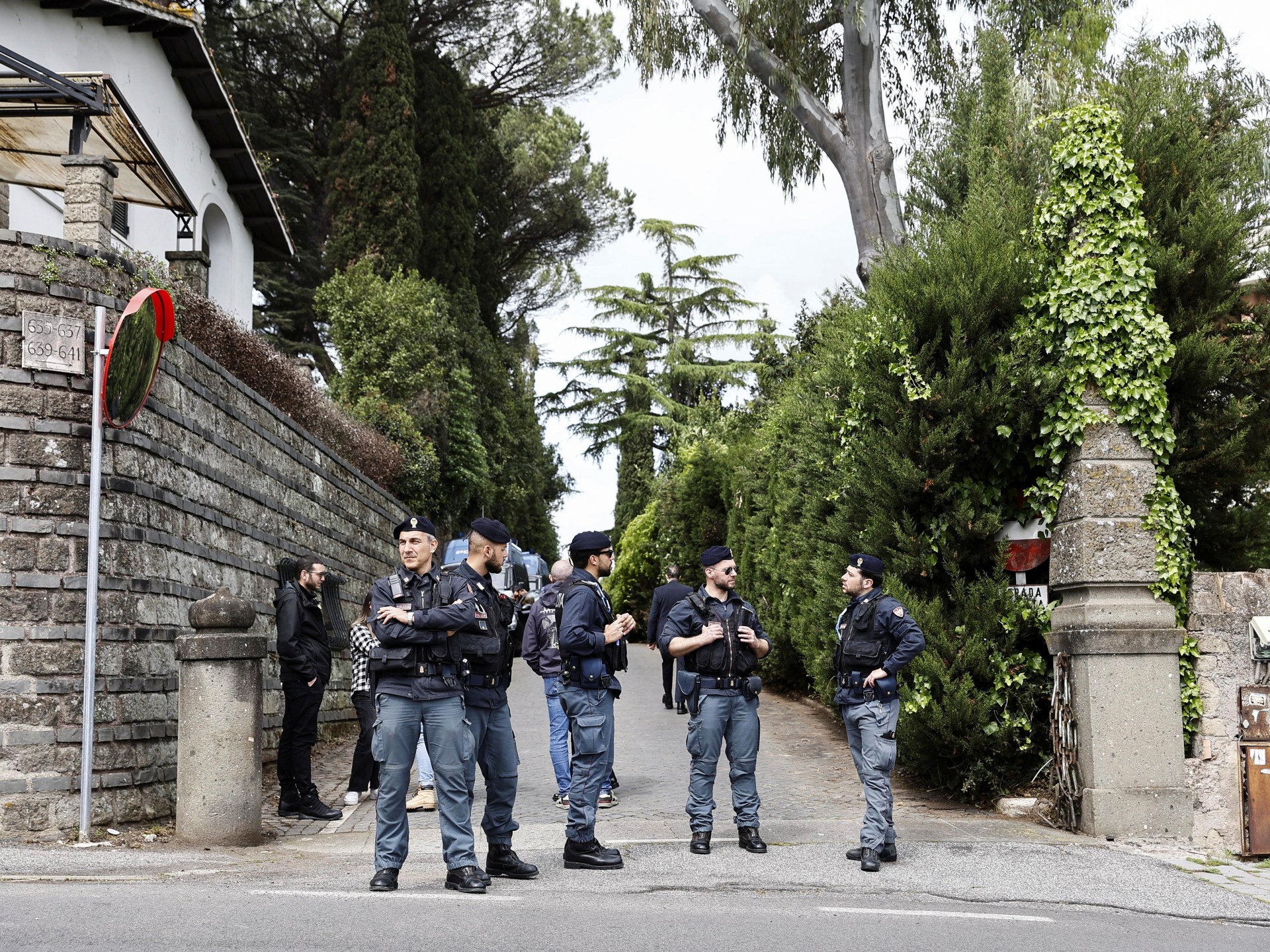
After technical talks, senior negotiators expected to reunite on April 26, according to Iran’s foreign ministry.
Iran and the United States have completed a second round of indirect nuclear negotiations, which Iran’s foreign minister has described as “constructive” and moving forward with further meetings planned in the coming week.
Abbas Araghchi and US Middle East envoy Steve Witkoff held four hours of indirect talks at Oman’s embassy in the Italian capital, Rome, on Saturday, according to Araghchi.
“We succeeded in reaching a better understanding on certain principles and goals,” the diplomat was quoted by the semiofficial Tasnim news agency as saying. “The negotiations were conducted in a constructive atmosphere and are progressing.”
There has been no readout yet of the meeting from the US side.
The delegations – led by Araghchi and Witkoff, a billionaire real estate executive whom US President Donald Trump has dispatched on numerous foreign policy missions – stayed in separate rooms in the embassy as Omani Foreign Minister Badr al-Busaidi shuttled messages between them, according to Iranian officials.
Iran’s Ministry of Foreign Affairs said the parties will hold more indirect, technical-level talks in the coming days, followed by another meeting with senior officials on April 26.
There were useful indirect talks today between Iran and the United States conducted by Oman Foreign Minister in a constructive atmosphere.
The two sides agreed to continue the indirect talks in few days at technical level to be followed by another round at their own level on…
— Esmaeil Baqaei (@IRIMFA_SPOX) April 19, 2025
“I hope that after next week’s technical sessions, we’ll be in a better position,” Araghchi said, according to Tasnim. “There’s no reason for excessive optimism or pessimism.”
‘Negotiations to pick up’
Al Jazeera’s James Bays, reporting near the Omani diplomatic compound in Rome, said the Iranian response was “very positive” for a delegation that “had seemed pretty negative going into the talks”.
Next week’s planned talks mean “the pace of negotiations is going to be picked up”, Bays said.
The latest meeting comes a week after Iran and the US came together in Muscat for their first high-level discussions since Trump in 2018 unilaterally abandoned a landmark nuclear accord signed and brokered by world powers in 2015.
The Iranians “are looking for a kind of consistency when it comes to the current talks”, Al Jazeera’s Tohid Asadi reported from Tehran.
Will US accept civilian nuclear programme?
Western governments, including the US, have long accused Iran of seeking to develop nuclear weapons – an allegation Tehran has denied, insisting its nuclear programme is solely for peaceful civilian use. On Wednesday, the head of the International Atomic Energy Agency, Rafael Grossi, said Iran was “not far” from possessing a nuclear weapon.
Grossi was also in Rome on Saturday meeting Italian Foreign Minister Antonio Tajani. Grossi’s nuclear watchdog would likely be central in verifying compliance by Iran should a deal be reached, as it did with the 2015 accord.
The US and Iran have had no diplomatic relations since shortly after Iran’s 1979 Islamic Revolution. After returning to office in January, Trump revived his “maximum pressure” sanctions campaign against Tehran, but in March, he sent a letter to Iranian Supreme Leader Ali Khamenei calling for renewed negotiations – while warning of military consequences if diplomacy fails.
“I’m not in a rush” to use force, Trump said on Thursday. “I think Iran wants to talk.”
On Friday, Araghchi said the US showed “a degree of seriousness” during the first round of talks but questioned Washington’s “intentions and motivations”.
Bays said the heart of the dispute remains whether Iran may maintain a civilian nuclear programme – or whether, as hardliners in Washington insist, it must dismantle its nuclear programme entirely.
“All they’ve been talking about last week in Muscat and here in Rome is a framework for the discussions and what they want to achieve,” Bays said. “They have not been discussing the nuclear detail, … and the devil is in the detail on these things.”
Middle East
Over 170 arrested for attacks on Pakistan KFC outlets in Gaza war protests | Israel-Palestine conflict News
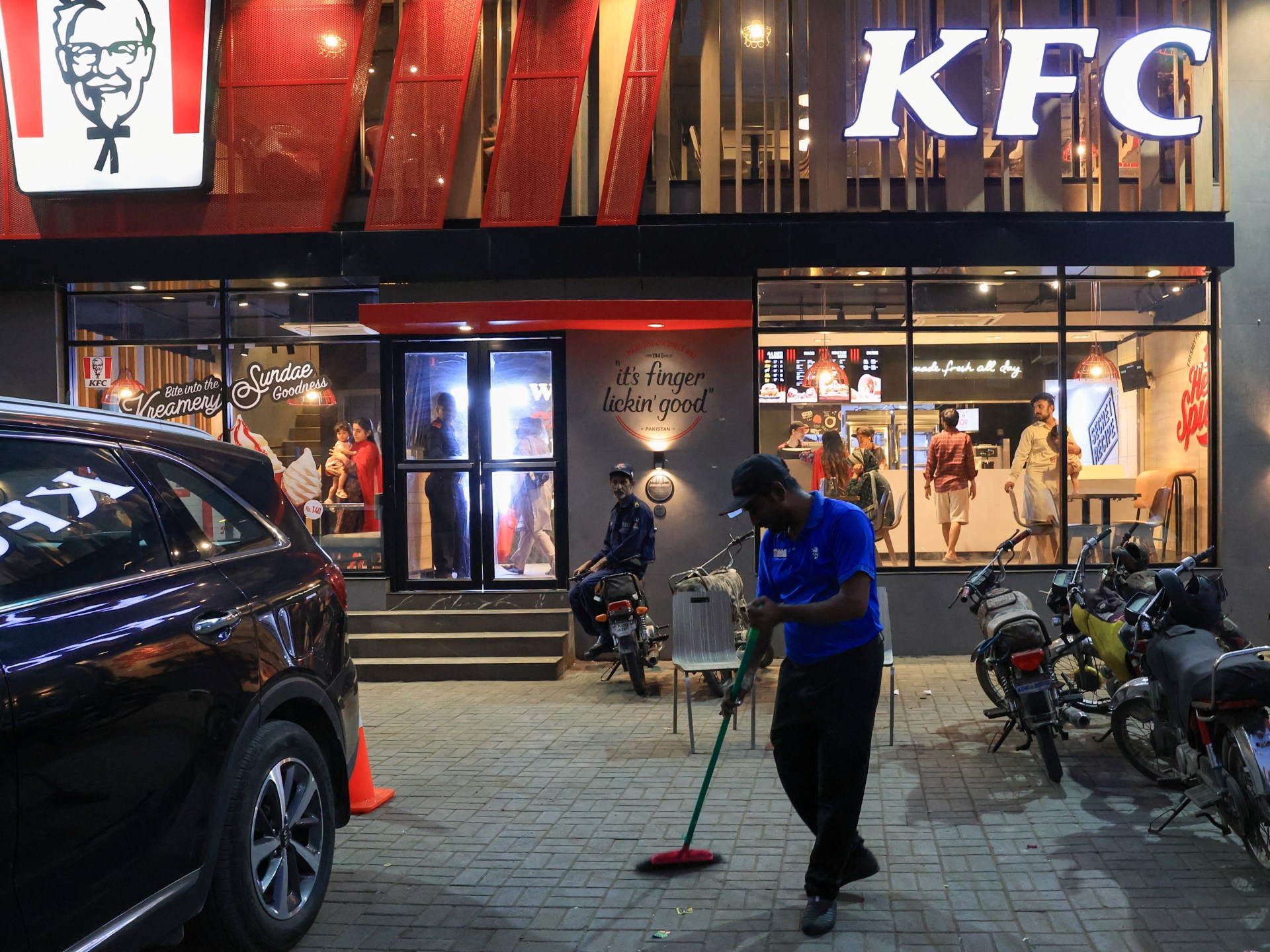
Western brands have been hit by boycotts and other forms of protests in Muslim-majority countries due to the Gaza war.
Police have arrested close to 200 people in Pakistan in recent weeks after more than 10 group attacks on outlets of the United States-based fast-food chain KFC, sparked by anti-US sentiment, unconditional US backing for Washington’s close ally Israel and opposition to Israel’s war in Gaza, officials say.
The fast-food chain has become a target of protest and boycott calls by Islamist parties since the start of the war in Gaza as they link the brand to US support for Israel.
At least 178 people have been arrested, the officials said this week.
Police in major cities in Pakistan – including the southern port city of Karachi, the eastern city of Lahore and the capital, Islamabad – confirmed at least 11 incidents in which KFC chicken restaurants were attacked by protesters armed with sticks and vandalised.
A police official, who spoke on condition of anonymity, said one KFC employee was shot and killed this week in a store on the outskirts of Lahore by unknown gunmen. The official added there was no protest at the time and police were investigating whether the killing was politically motivated or for some other reason.
In Lahore, police said they were ramping up security at 27 KFC outlets after two attacks took place and five were prevented.
“We are investigating the role of different individuals and groups in these attacks,” Faisal Kamran, a senior Lahore police officer told the Reuters news agency, adding that 11 people, including a member of the Islamist party Tehreek-e-Labbaik Pakistan (TLP), have been arrested in the city. He added the protests were not officially organised by the TLP.
TLP spokesman Rehan Mohsin Khan said the group “has urged Muslims to boycott Israeli products, but it has not given any call for protest outside KFC”.
“If any other person claiming to be a TLP leader or activist has indulged in such activity, it should be taken as his personal act which has nothing to do with the party’s policy,” Khan said.
Western brands have been hit by boycotts and other forms of protests in Pakistan, other Muslim-majority countries and several Western nations over Israel’s military offensive in the Gaza Strip.
In February last year, McDonald’s cited boycott campaigns in the Middle East, Indonesia and Malaysia for sales growing just 0.7 percent during the fourth quarter of 2023, compared with 16.5 percent growth in the same quarter the previous year.
Unilever – which produces Dove soap, Ben & Jerry’s ice cream and Knorr stock cubes – also said sales in Indonesia in the same quarter had experienced a double-digit decline as a result of “geopolitically focused, consumer-facing campaigns”.
A KFC restaurant in the Pakistan-administered region of Kashmir was also set on fire in March last year as protesters chanted “Free Palestine.”
More than 51,900 people have been killed in Gaza during Israel’s war, which began 18 months ago.
At least 1,139 people were killed in Israel during the Hamas-led attacks of October 7, 2023, and more than 200 were taken captive.
KFC and its parent company Yum Brands have not yet responded to news of the arrests in Pakistan.
Middle East
Israeli bombardment of Gaza kills 92 in two days: Health Ministry | Israel-Palestine conflict News
At least 219 people have also been injured in attacks since Good Friday, with many children among the casualties, according to health officials.
Israeli attacks have killed 92 Palestinians in the Gaza Strip over the past two days, according to the territory’s Ministry of Health.
The attacks, which took place on April 17-19, have also left at least 219 people wounded and hospitalised, the ministry said in a statement on Saturday, with dozens more still trapped under the rubble or in areas that rescuers are unable to reach.
The surge in bloodshed comes as Israel presses a six-week aid blockade and demands that Hamas disarm before any truce can be agreed. The armed group has flatly refused the demand and insists a permanent ceasefire must be part of any deal.
At least 15 children, hit during an overnight air raid on tents in Khan Younis, were among the casualties, according to the statement. A raid on Rafah killed a mother and her daughter alongside two others, according to the European Hospital where their bodies were taken.
“For the vast majority of civilians, nighttime is the time of horror and unrelenting pain,” said Al Jazeera’s Tareq Abu Azzoum, reporting from central Gaza. “Nobody is safe in their homes, in the makeshift tents, in displacement camps.”

‘Less than a meal a day’
After restarting its military campaign on March 18 following a brief ceasefire, Israel has pledged to intensify its 18-month war on Gaza and occupy large “security zones” inside the Strip.
Since March 2, it has also blocked the entry of food, fuel and aid into the enclave, defying an order by the International Court of Justice (ICJ) that it must allow humanitarian access.
Aid groups warn food is running out.
“Kids are eating less than a meal a day and struggling to find their next meal,” said Bushra Khalidi, policy head of Oxfam. “Malnutrition and pockets of famine are definitely occurring in Gaza.”
Earlier this week, Hamas rejected an Israeli proposal to pause fighting for 45 days if the Palestinian group releases 10 live captives and agrees to disarm.
“The request to disarm Hamas is not acceptable to even hear,” senior Hamas official Sami Abu Zuhri said. “This is not just a red line. It is a million red lines.”
Hamas has offered to free all remaining captives – believed to be about 58 although several are dead – in return for a permanent end to the war and the Israeli army’s full withdrawal.
The death toll in Gaza has now reached 51,065, with 116,505 wounded, according to the Health Ministry.
“We can see the very psychological toll in the city on the faces of everyone here, people are walking very exhausted, traumatised,” said Abu Azzoum. “They are thinking about the dark future that awaits them.”
-

 Education1 day ago
Education1 day agoHarvard’s battle with the Trump administration is creating a thorny financial situation
-

 Sports2 days ago
Sports2 days agoAaron Rodgers ‘not holding anybody hostage’ as he decides his future, retirement a possibility
-
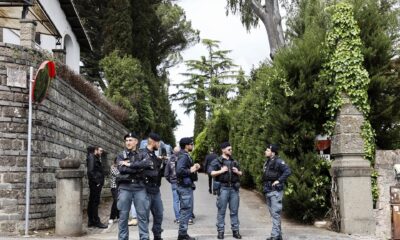
 Middle East8 hours ago
Middle East8 hours agoIran says progress in nuclear talks with US, confirms third round next week | News
-
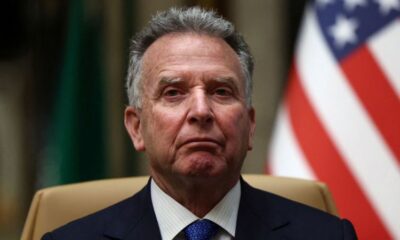
 Europe1 day ago
Europe1 day agoTrump’s ‘lone ranger’: How Steve Witkoff became the defacto point man on America’s foreign policy challenges
-

 Lifestyle1 day ago
Lifestyle1 day agoSweets from the sky! A helicopter marshmallow drop thrills kids in suburban Detroit
-

 Lifestyle2 days ago
Lifestyle2 days agoThousands of pilgrims trek through New Mexico desert to historic adobe church for Good Friday
-

 Europe1 day ago
Europe1 day agoThe Trump administration says Europe is taking advantage of the US. That’s not exactly true
-

 Conflict Zones1 day ago
Conflict Zones1 day agoTrump says US may ‘pass’ on helping end war if Russia, Ukraine resist deal | Russia-Ukraine war News



